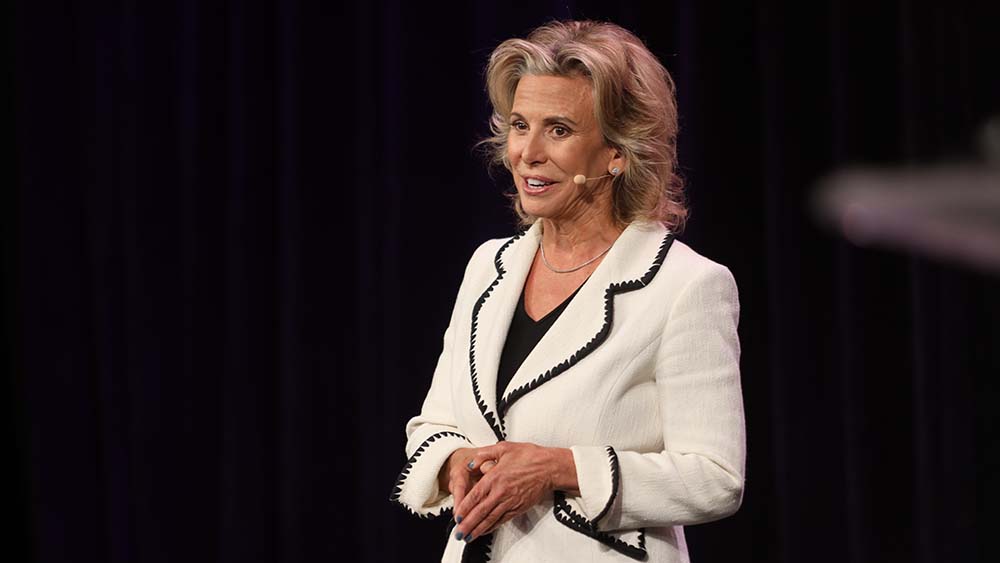
Angie Ranalli, outgoing Chair of the PCMA Foundation Board, speaks at Educon 2021 in Phoenix. (Jacob Slaton Photography)
Angie Ranalli, 2021 Chair of the PCMA Foundation Board, looks back on a year of challenges and successes, and the changes the pandemic has brought to the business events industry.
When Angie Ranalli spoke to Convene in early 2021 about her goals as Chair of the PCMA Foundation Board, she said she wanted the Foundation to help PCMA members to survive and thrive during challenging times through scholarships, education, and other useful tools.
Nearly a year later, Ranalli, San Diego Tourism Authority’s vice president of sales, Midwest region, reflected on her past year in office, the Foundation’s accomplishments, as well as what she’s anticipating in the year ahead.
When you look back at the last year as chair of the PCMA Foundation Board of Trustees, what accomplishments stand out to you?
When I started out on the Foundation Board over five years ago, none of us would’ve ever really thought to plan for what’s happened [the pandemic]. However, I’m grateful that the Foundation was created because what it makes available in our current environment has been crucial. It’s allowed PCMA to step up with immediate tools in the way of what we were able to deliver with DES, and that continued, and the numbers of people to whom we were able to provide the certificates, and how that impacted their immediate needs. Then — the number of scholarships that we provided this year alone, just so that our members could attend face-to-face events.
Probably the biggest impact, though, is us committing to the strategic corpus goal of $25 million by 2030, because that really future proofs our commitment to enrich the industry, moving forward with scholarships, grants, and research. In other words, the $25 million provides us with the ability to commit $1 million every year. But the fact that we collectively have decided that we have to bank this committed amount by 2030, if not sooner, was the most important. PCMA needs to serve that role to its members — it needs to be where you can go for your education.
What are some of the highlights of the last year for you personally?
For me, the highlight — because it was so important — was the [time for] reflection and listening — listening to our members as well as other industry leaders. Then, of course, re-engagement [after the beginning stages of the pandemic], because once you really did the reflection and listening, you were able to step back in and attempt to address events: What could be accomplished in the course of 2021, what could be salvaged, and what could we possibly move forward? I think that’s a highlight many people share.
What do you consider to be the biggest challenge and opportunity for the events industry in 2022?
We had a forced pause. I think all the downtime has really given us permission to rethink, and to become more transparent as we’re designing recovery strategies. I think we can and should be more intentional, and inclusive about future training, mentoring, and hiring practices. This, of course, includes DEI. And in terms of our environment, our industry is such a major participant, and has an impact on the environment. All of our organizations can rethink their strategies on [being environmentally conscious], to be active participants, and I think that’s extremely exciting. It goes beyond LEED certifications — it’s at every level of the industry, and it doesn’t matter what kind of stakeholder you are. Everyone can have an impact.
I don’t think any of us are naive. I think we know it’s a new environment out there, but I think there’s been enough time, and with enough challenges that have occurred along the way, that we’re going to be a stronger, more progressive industry, and that in itself excites me.
Casey Gale is an associate editor at Convene.
